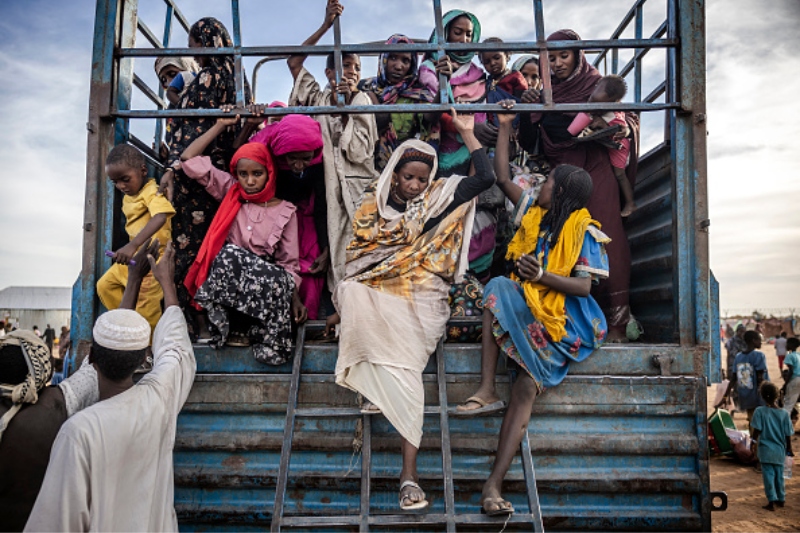Growing Humanitarian Crisis:
As Sudan’s conflict nears its one-year milestone, the UN Refugee Agency (UNHCR) issues a stark warning, revealing that more than 25 million people are grappling with a worsening humanitarian crisis. The situation, described as one of the largest and most complex displacement crises globally, continues to escalate with no resolution in sight. Every day, thousands of refugees cross borders in search of safety from the conflict, with South Sudan reporting a significant influx.
Mass Displacement and Impact on South Sudan
The number of displaced individuals has surpassed 8.5 million, with 1.8 million crossing international borders. In South Sudan, over 635,000 refugees have sought shelter, representing a staggering 5% of the nation’s population. The influx of refugees places immense strain on South Sudan’s already fragile infrastructure, exacerbating challenges related to food, water, shelter, and healthcare. Additionally, the closure of a crucial oil pipeline damaged during the conflict in Sudan’s White Nile state further compounds economic woes in South Sudan, leading to rapid inflation and revenue loss.
Urgent funding needs and response efforts:
Despite the escalating crisis, funding remains critically low, hampering response efforts to address the urgent needs of affected populations. The Regional Refugee Response Plan for Sudan and the Humanitarian Response Plan for inside Sudan have only fulfilled a fraction of the required funding, which poses significant challenges in providing essential aid and support to affected populations. UNHCR and other humanitarian agencies call for urgent financial assistance to meet the growing needs of millions affected by the Sudan conflict, both within the country and across the region.
Keep Reading
Challenges and Future Outlook:
The dire funding situation presents a significant obstacle to addressing the multifaceted challenges arising from the Sudan conflict. Without adequate financial support, humanitarian agencies struggle to provide lifesaving assistance, including shelter, food, clean water, and medical care, to those in need. Additionally, the protracted nature of the crisis raises concerns about the long-term impact on the region’s stability and security, as well as the well-being of millions of displaced individuals and host communities.
International Community Response:
As the Sudan crisis enters its second year, there is a pressing need for the international community to step up its support and solidarity with affected populations. Enhanced diplomatic efforts, increased financial contributions, and sustained engagement are essential to address the root causes of the conflict, mitigate its humanitarian consequences, and facilitate durable solutions for displaced individuals. Additionally, Sudan and the broader region require concerted efforts to promote peace, reconciliation, and sustainable development.
Call to Action:
Urgent action is required to prevent further suffering and alleviate the plight of millions of affected individuals in light of the escalating humanitarian crisis in Sudan and its neighboring countries. Governments, donors, humanitarian organisations, and other stakeholders must prioritise humanitarian assistance, protection, and support for displaced populations. By mobilising resources, strengthening partnerships, and advocating for peace and stability, the international community can help alleviate the suffering of those impacted by the Sudan conflict and work towards sustainable solutions for lasting peace and prosperity in the region.
As the Sudan conflict marks its one-year anniversary, the UN Refugee Agency’s warning underscores the urgent need for collective action to address the growing humanitarian crisis. With millions of lives at stake and critical funding shortages threatening response efforts, timely intervention and sustained support are essential to provide lifesaving assistance and protect the rights and dignity of displaced populations. By working together and prioritising humanitarian action, the international community can help alleviate suffering, promote peace, and build a better future for all affected by the Sudan conflict.

